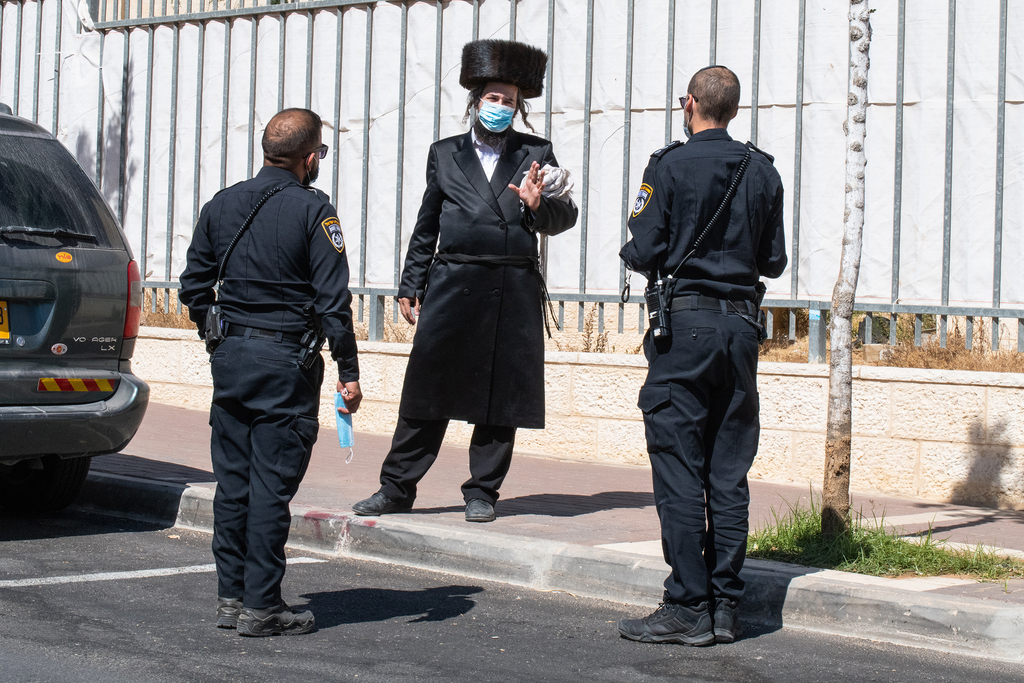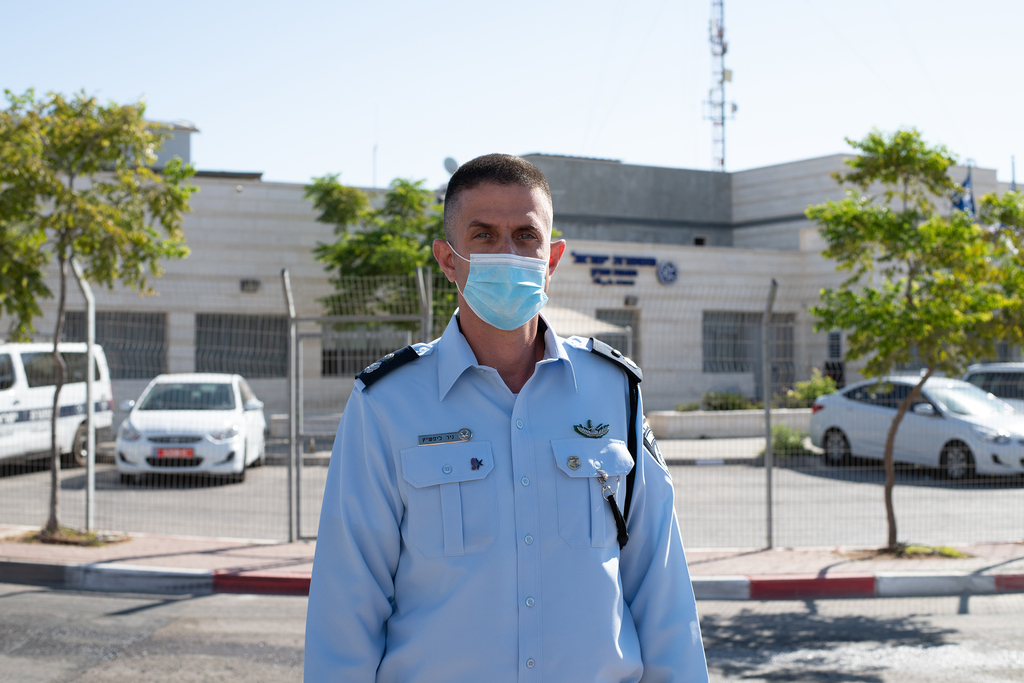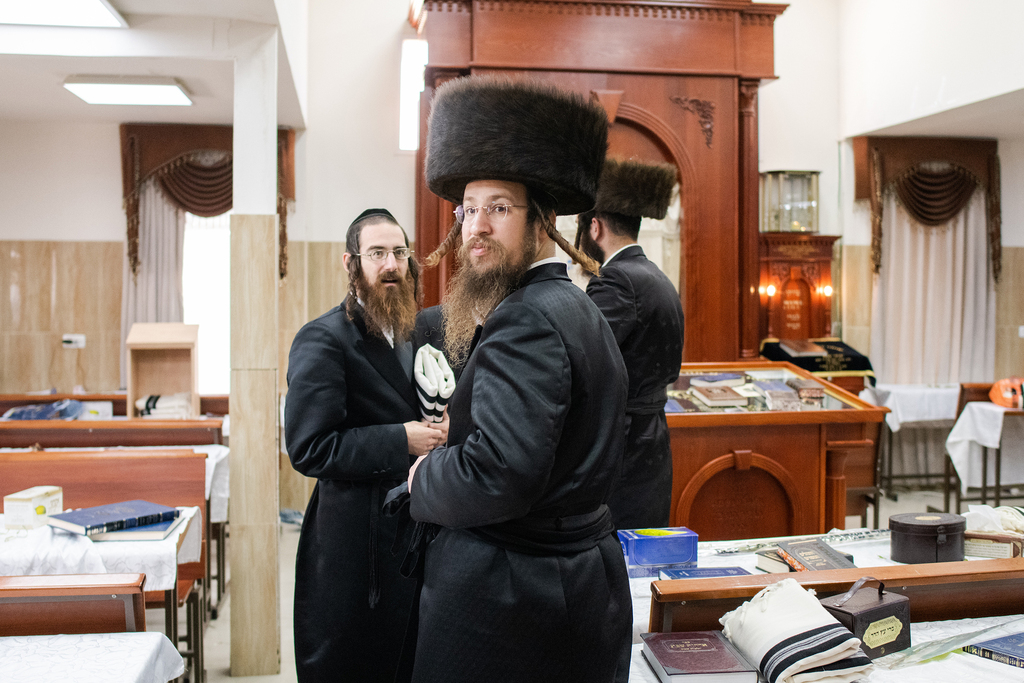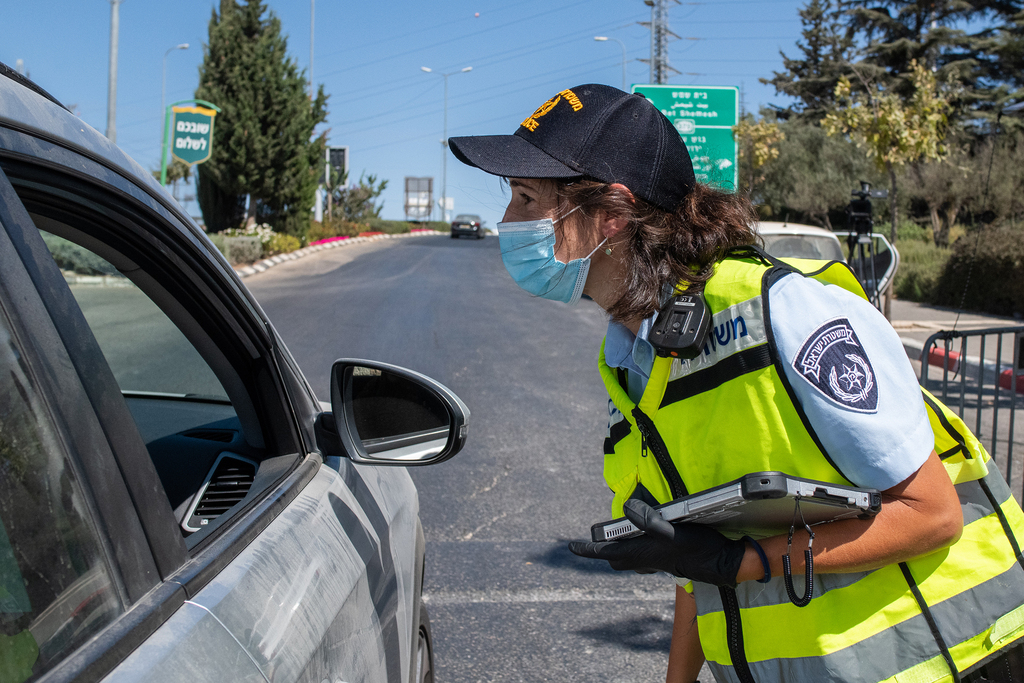Those familiar with the predominantly ultra-Orthodox West Bank settlement of Beitar Illit would be unable to recognize it these days.
Usually, the Sukkot holiday period is characterized by packed streets, klezmer music and children running around. This year, all festivities have gone underground.
HaMegid MeMezeritch Street, the community's central boulevard, is completely deserted of people. Haredi men wearing protective face masks carry the Four Species (four plants mentioned in the Torah as being pertinent to the holiday of Sukkot) to open-air Sukkahs.
All the children are at home, with police roadblocks blocking all entrances to the community.
"Most of the public in Beitar Illit is adhering to public health directives," said Police Chief Superintendent Nir Lifschitz, commander of the Etzion station house.
"They wear masks and refrain from public gatherings. We have good relations with the mayor and the local elected officials. The situation is still sensitive and our connection with the public is crucial to convey orders in a precise and understandable manner."
However, police are still struggling to combat blatant violations to lockdown orders among dozens of radical residents. Violations take place day in and day out, at the same location and at the same capacity.
Several images that came out of the West Bank community have portrayed neither the police nor local citizens in a positive manner, with a video Sunday showing an officer hurling a bucket at a child during unrest with locals over lockdown orders.
"There are several dozen that do not adhere to rules," Lipschitz says. "These are the areas we really focus our police work. The challenges are mass gatherings where there are children. Officers are forced to deal with very complicated situations, with residents calling them names and hurling objects at them. The officers who threw the bucket should have shown restraint and calm."
Clashes between Beitar Illit residents and police over lockdown rules
Following media uproar over the recent incidents, police officials ordered officers to film their work with their phones for the purpose of public relations.
Lifschitz stresses that police work is done in parallel with continued communications with local leadership. Police have also decided to assemble a forum of elected officials, citizens and rabbis to help with enforcing restrictions and reporting violations.
Patrol cars are driving through empty streets, past shuttered shops. Occasionally officers stop someone not wearing a mask to issue a fine, but these are rather sporadic incidents.
A report comes in of an illegally operated synagogue. Standing at the entrance, dozens of Haredi men can be seen inside praying, most not wearing a face mask or observing social distancing.
From inside, they yell at the officers to leave and try to cover the cameras filming them.
"Get out of here Zionists. Antiochus [the Seleucid king whose persecution of the Jews led to the Maccabean revolt]," yells one of the younger parishioners.
We pull back from the synagogue, when suddenly one of the cameramen is hit by a person attempting to flee.
"We know you are coming to look for us," says one of the men. "Let us pray, we will fight the coronavirus our way."
In one of the synagogues we met Zadok (a pseudonym), a young man who has contracted COVID-19.
"The reality is that no one is adhering to regulations," he says.
Asked why he is wearing a protective face mask, he says "it's because of the cops. I don't want to get a fine."
"I was in a yeshiva for a month, where all of us students got infected," he says. "Whoever is scared of the virus should stay home, there is no need to lock us all down because of this corona."
Asked if he understands that such violations only keep the economy closed longer and cause more people to lose their livelihoods, Zadok says: "You need to understand that you can't lock down the Haredi public."
"We live in communities, pray together, with multi-children families," he says. "This social distancing thing means nothing to us, and they will never be able to successfully enforce it."







